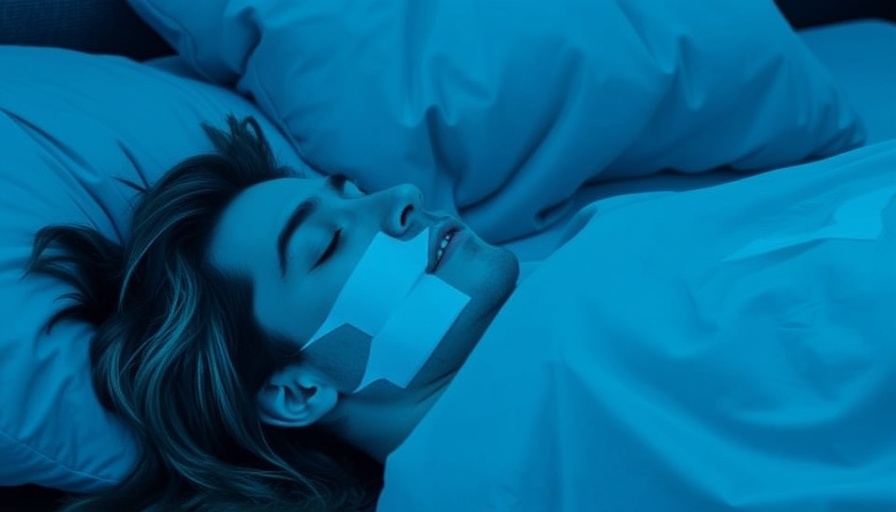
The Surprising Benefits of Mouth Taping
Mouth taping, an unconventional but growing trend in the wellness community, is capturing attention for its potential benefits on sleep and overall health. By placing a small piece of tape over the lips during sleep, individuals can shift from breath through the mouth to nasal breathing, a transition that promises several positive health outcomes. But why is this simple habit making waves?
Understanding the Dangers of Mouth Breathing
Despite the odd perception of mouth taping, understanding mouth breathing's implications makes this practice seem less strange. A surprising portion of the population—around 50%—is unknowingly adopting mouth breathing as a norm, especially at night. This seemingly innocuous habit can trigger a series of health issues: dry mouth, cavities, and even complications in facial growth.
Over time, habitual mouth breathing can exacerbate dental concerns like tooth decay due to reduced saliva production, facilitate uneven facial development in children, and lead to obstructed airways. These issues underline the importance of nasal breathing not only for oral health but also for general well-being.
How Mouth Taping Works
Essentially, mouth taping utilizes gentle skin-safe tape to keep the lips together while sleeping. This practice promotes nasal breathing, allowing the tongue to rest in its natural position against the roof of the mouth. But the benefits go beyond mere convenience. Many users report less snoring and no more dry mouth upon waking, enhancing their sleep quality significantly.
Debunking Common Misconceptions
While mouth taping isn't widely practiced yet, its ability to relieve several health issues has scientific backing, bringing attention from both holistic and conventional medical practices. Misconceptions may arise regarding safety or efficacy, yet using hypoallergenic tape ensures comfort without risking any harm. Additionally, research continues to reveal the profound impact of nasal breathing on overall health, further supporting this practice.
Additional Health Insights and Expert Opinions
Several health experts suggest that promoting nasal breathing through mouth taping can reduce risks of sleep apnea and improve oxygenation during sleep, resulting in better cognitive function during the day. Highlighting research from sleep studies, these insights reinforce why making this simple change can have an outsized influence on one’s health.
Practical Tips for Implementing Mouth Taping
If you're intrigued by mouth taping, consider starting with these steps:
- Choose a high-quality, skin-safe tape to avoid irritation.
- Ensure that you're comfortable with breathing through your nose—practice during the day.
- Start slowly to ease into the habit, possibly adding relaxation techniques before bed to help wind down.
Making changes to your nightly routine could lead to not just improved sleep quality, but an overall enhancement to your well-being.
Conclusion: Embrace the Change
While mouth taping may seem like an unusual practice, its benefits for sleep and oral health are impressive, and many who have embraced it report life-changing results. If you often wake up feeling tired or experience mouth-related issues, consider giving mouth taping a try—it could be the simple health hack you're looking for!
 Add Row
Add Row  Add
Add 




Write A Comment